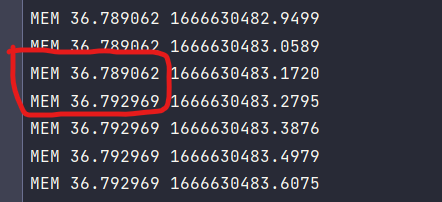Does your result show memory usage between two different runs of this task? If so, this most likely is not an issue: the accumulation of memory is actually expected.
By default, Rocketry logs the tasks (ie. when a task started, when it succeeded/failed/etc.) to an in-memory list. This is fundamental part of Rocketry as most of the scheduling is based on whether a task started/finished at a given period of time, as does the condition every (though there is some optimization in place by default).
What does the results show if you disable the logger?
from memory_profiler import profile
from rocketry import Rocketry
from rocketry.conditions.api import scheduler_cycles
from rocketry.conds import every
import logging
logger = logging.getLogger("rocketry.task")
logger.disabled = True
app = Rocketry()
@profile
@app.task(every("1 seconds"), execution="async")
async def job():
print(1)
if __name__ == '__main__':
app.session.config.shut_cond = scheduler_cycles(more_than=10)
app.run()How did you run the memory_profiler? I tried to reproduce this but couldn't get the output out of the library.
Steps to reproduce the behavior.
View the dat file in the same directory,memory leaks will be found